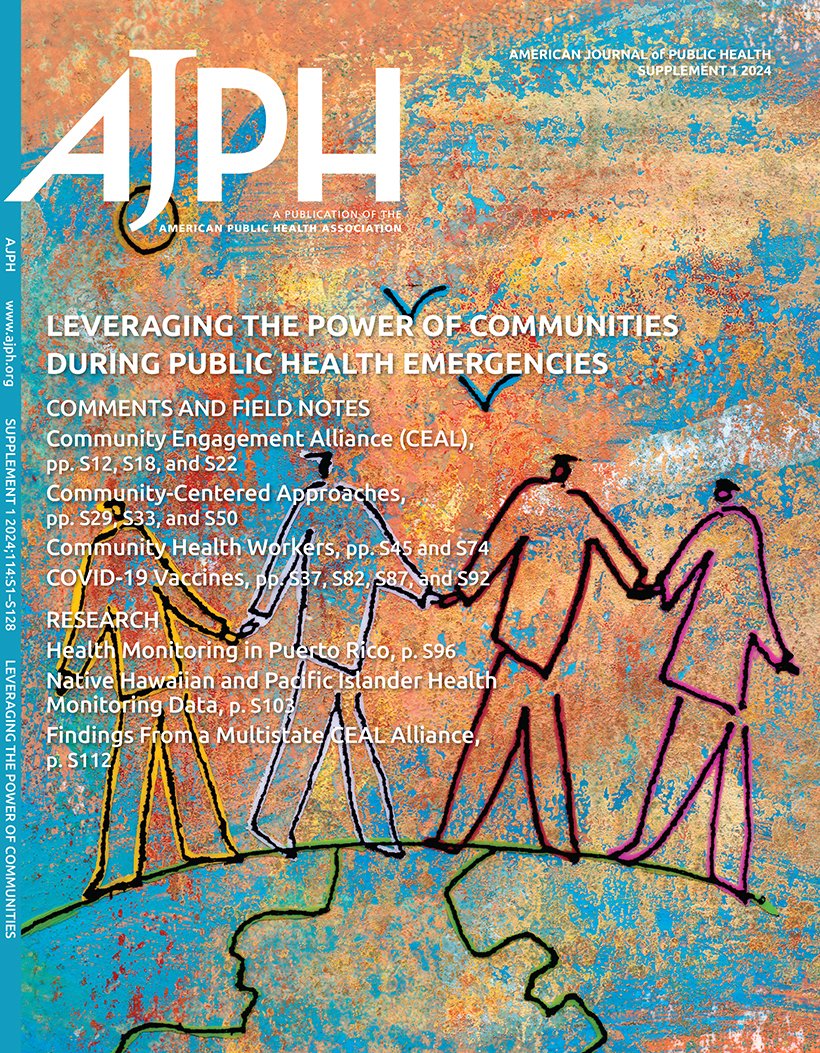与大流行病有关的资金终止和不公平的结构性驱动因素:一个以促进者/重点社区为基础的组织的案例研究。
IF 9.6
1区 医学
Q1 PUBLIC, ENVIRONMENTAL & OCCUPATIONAL HEALTH
引用次数: 0
摘要
在2019冠状病毒病大流行期间,政府机构扩大了安全网计划,以减轻深刻的经济痛苦。然而,结构性挑战将许多低收入、移民和少数族裔社区排除在外,加剧了不平等。促进者/促进者和社区组织(cbo)的模式侧重于解决不平等的结构性驱动因素,对社区应对这些挑战至关重要。这篇分析性文章探讨了终止与大流行有关的资金如何使社区卫生组织及其所服务的社区紧张。通过对一家中型促销员/促销员模型CBO的案例研究,我们分析了基于实践的定性和定量数据,同时对COVID-19促销员/促销员模型进行了定性研究。研究结果阐明了大流行后的双重利益悬崖。随着大流行福利的到期,个人再次面临暂时缓解的经济困难。同时,对社区组织的需求增加,加上资金和资源减少,威胁到它们满足社区需要的能力。研究结果表明,建立联盟对于结构转型以及政府和非政府组织支持促进者/作为模式和cbo促进卫生公平的重要性。公共卫生。2025年9月4日提前在线发布:e1-e12。https://doi.org/10.2105/AJPH.2025.308154)。本文章由计算机程序翻译,如有差异,请以英文原文为准。
Pandemic-Related Funding Termination and Structural Drivers of Inequities: A Case Study of a Promotores/as-Focused Community-Based Organization.
During the COVID-19 pandemic, governmental agencies expanded safety net programs to ameliorate profound economic suffering. However, structural challenges excluded many low-income, immigrant, and racially minoritized communities, deepening inequities. Promotores/as and community-based organizations (CBOs), whose models focus on addressing structural drivers of inequities, were vital to communities navigating these challenges. This analytic essay examines how terminating pandemic-related funding strained CBOs and the communities they serve. Through a case study of a midsized promotores/as model CBO, we analyze practice-based qualitative and quantitative data, alongside a qualitative study of COVID-19 promotores/as models. Findings illuminate a dual postpandemic benefits cliff. As pandemic benefits expired, individuals once again faced the economic hardships that had been temporarily alleviated. Simultaneously, heightened demands on CBOs, along with reduced funding and resources, threatened their ability to meet community needs. Findings indicate the importance of coalition-building for structural transformation and governmental and nongovernmental support of promotores/as models and CBOs to promote health equity. (Am J Public Health. Published online ahead of print September 4, 2025:e1-e12. https://doi.org/10.2105/AJPH.2025.308154).
求助全文
通过发布文献求助,成功后即可免费获取论文全文。
去求助
来源期刊

American journal of public health
医学-公共卫生、环境卫生与职业卫生
CiteScore
9.50
自引率
3.90%
发文量
1109
审稿时长
2-4 weeks
期刊介绍:
The American Journal of Public Health (AJPH) is dedicated to publishing original work in research, research methods, and program evaluation within the field of public health. The journal's mission is to advance public health research, policy, practice, and education.
 求助内容:
求助内容: 应助结果提醒方式:
应助结果提醒方式:


